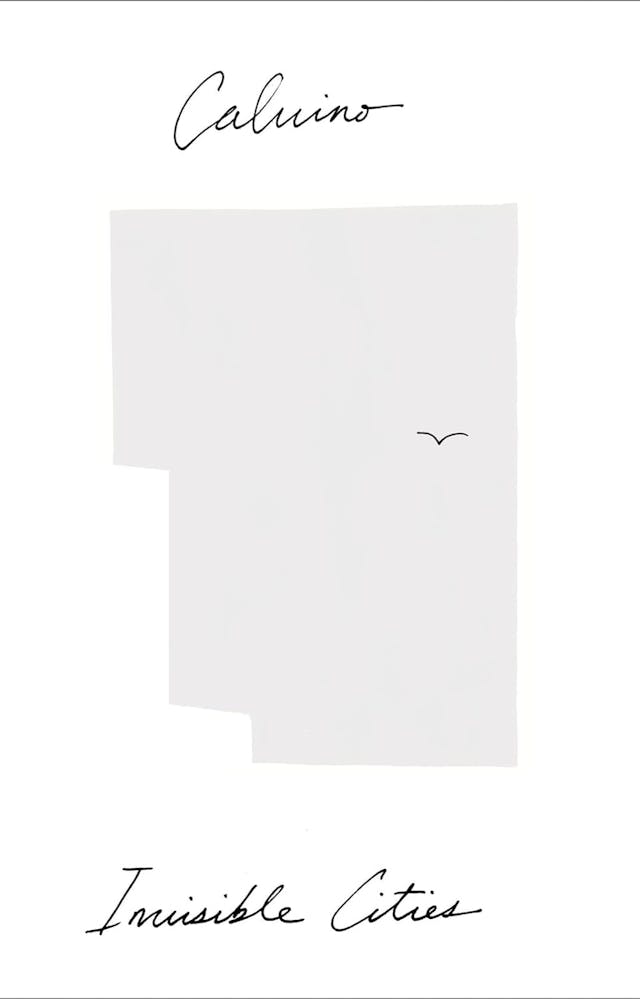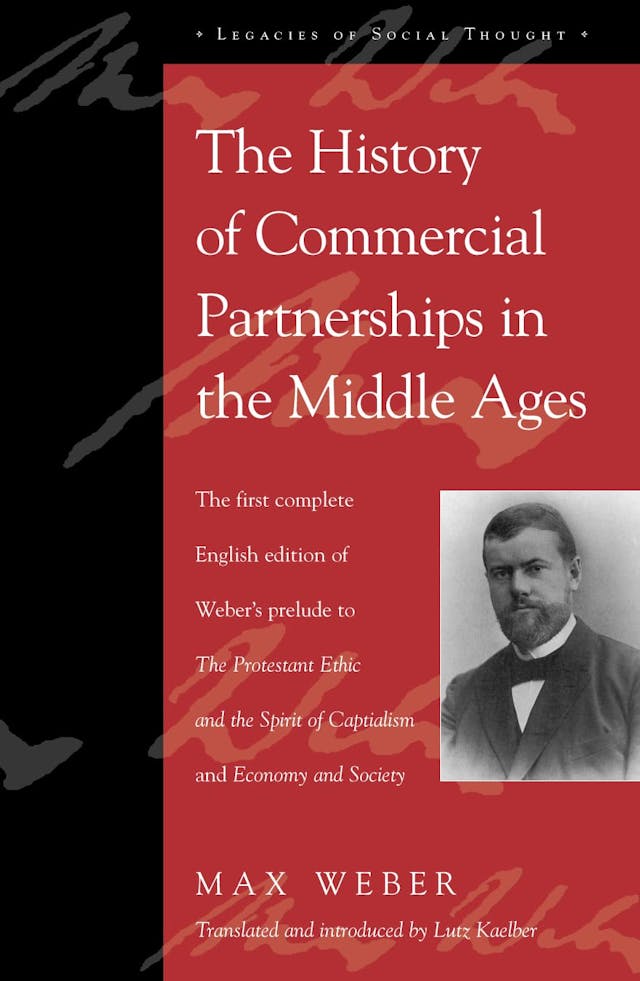Guan Yang | November 5, 2021
The Dogal Elections Edition
On Venice, decisions, and policy outcomes
Recommended Products
A content series set in Venice, featuring the Brunetti Mysteries.

A book by Italo Calvino, consisting of 55 vignettes of imaginary cities, which all turn out to be Venice.

Before his better-known work on politics, religion, and bureaucracy, Max Weber wrote his doctoral thesis on the commenda structure, translated into English in this title.

Max Weber's doctoral thesis on the commenda structure before his better-known work on politics, religion, and bureaucracy.
Guan Yang (GY) is a data scientist based in New York. His favorite content set in Venice is the Brunetti Mysteries.
Guan here. The Most Serene Republic of Venice (726-1797) was a major commercial and maritime power. In addition to the famous lagoon city in Northeastern Italy, Venice ruled territories and islands stretching all the way down to Crete.
Venice’s head of state was the Doge, or Doxe in Venetian (not the shiba inu based meme, or the related cryptocurrency). The doge was chosen with rules first adopted in 1268 and used, with few changes, until the last election in 1789:
Thirty members of the Great Council, chosen by lot, were reduced by lot to nine; the nine chose forty and the forty were reduced by lot to twelve, who chose twenty-five. The twenty-five were reduced by lot to nine, and the nine elected forty-five. These forty-five were once more reduced by lot to eleven, and the eleven finally chose the forty-one who elected the doge. Election required at least twenty-five votes out of forty-one, nine votes out of eleven or twelve, or seven votes out of nine electors.
On the chance you found that hard to follow, Miranda Mowbray and Dieter Gollman of HP Labs summarized it with this handy table in a paper analyzing the procedure:
In addition to the hereditary Great Council (round 1), we get nine additional bodies, some chosen randomly by lot—a process known as “sortition”—and some elected under various supermajority rules (meaning they require a greater than 50 percent vote), culminating in a 41-person college that elects the doge with at least 25 votes. There were also restrictions on the number of members of each college from each family and on the electors’ communications with the outside world. Campaigning was forbidden.
Neither papal conclave nor the system used to select the president of the United States can hold a candle to this harebrained scheme. So why did the Venetians make it so complicated, and why did the system survive so long?
Gabriele Bella: Election of the Doge by the Forty-one
The city was nominally governed by the doge and the hundreds of noble families represented in the Great Council, but politics was dominated by a handful of powerful families. The standard explanation for the complex selection procedure is that it prevented powerful families from applying undue pressure to elect their preferred candidates without majority support. (Being doge was quite costly, and the powers of the office were later curtailed, so some powerful men tried to avoid election, using the same tricks used to get elected.)
Sortition, combined with isolation for the electoral college, can make the system less vulnerable to manipulation, and allow the randomly selected electors more careful consideration and deliberation. Adding a supermajority rule to sortition makes it less likely that a minority candidate can be elected by chance because they happen to be supported by members of the randomly selected group.
Mathematical analysis of the protocol shows that having many rounds of sortition could lead to a doge being elected with only minority support, so using too many rounds would be unwise. But having multiple rounds reduces the probability that a powerful minority candidate could unduly influence a small number of electors with bribes or threats, and makes it harder to figure out exactly who should be bribed or threatened.
Why is this interesting?
The way societies make decisions is important. There is a growing understanding that different systems can lead to quite different outcomes. Ireland rejected the British first-past-the-post system after independence and adopted the single transferable vote in 1921. New York City started using ranked-choice voting this summer, with some hiccups. Other countries have moved to full proportional representation where seats are allocated to parties more or less based on national vote share.
There’s also the question of the best level of representation. Should city councils be elected at-large for the whole city (like in Cambridge, Mass.) or in single-member districts, and how would that affect outcomes such as diversity and zoning? Perhaps some decisions should be taken away from the city council, and either moved down to the neighborhood level or up to the regional level? And should some decisions, such as monetary policy, be taken out of democratic control altogether and left to technocrats?
Using sortition to choose government officials, as Venice and Ancient Athens did, is a niche idea these days, but in common-law countries, juries deciding legal cases are (supposed to be) chosen randomly from the population. Nobel laureate Daniel McFadden wants to use “economic juries” of randomly selected people to decide on big public projects, arguing that this can better reflect public opinion than a referendum.
Since these political design choices affect policy outcomes, it would be naive to think this is only about high-minded notions of the “quality” of decisions. But that doesn’t make the question of how societies should make decisions any less interesting. (GY)
Quick Links:
[Sponsored: Atlas Bars are GMO-free and keto-friendly with 15 grams of protein and just a gram of sugar. We’ve tried Atlas and they are very good. Use this link for WITI readers to get 20 percent off. Get started with the sample pack.]
The system warning Venetians of an incoming flood goes from one to four sirens. The Fifth Siren, a new podcast, explores what comes after that. (GY)
The city is trying to control tourism with surveillance cameras and phone tracking. (GY)
Death in Venice (also a film by Tony Palmer) is an opera by Benjamin Britten based on a novella by Thomas Mann. Aschenbach, a famous novelist who has lost his inspiration, finds himself in Venice during a plague. (GY)
Italo Calvino’s Invisible Cities is 55 vignettes of imaginary cities, which all turn out to be Venice. (GY)
Venetian maritime commerce was organized in the commenda structure. Before his better-known work on politics, religion and bureaucracy, Max Weber wrote his doctoral thesis on these, translated into English as The History of Commercial Partnerships in the Middle Ages. (GY)
--
WITI x McKinsey:
An ongoing partnership where we highlight interesting McKinsey research, writing, and data.
Managing water risk. What’s the potential business impact of dwindling fresh-water supplies? By one estimate, $425 billion of value across more than 500 companies. New analysis shows how companies can target renewable-energy purchases and investments to reduce water risk and carbon emissions in tandem. Check it out.
--
Thanks for reading,
Noah (NRB) & Colin (CJN) & Guan (GY)
—
Why is this interesting? is a daily email from Noah Brier & Colin Nagy (and friends!) about interesting things. If you’ve enjoyed this edition, please consider forwarding it to a friend. If you’re reading it for the first time, consider subscribing.



